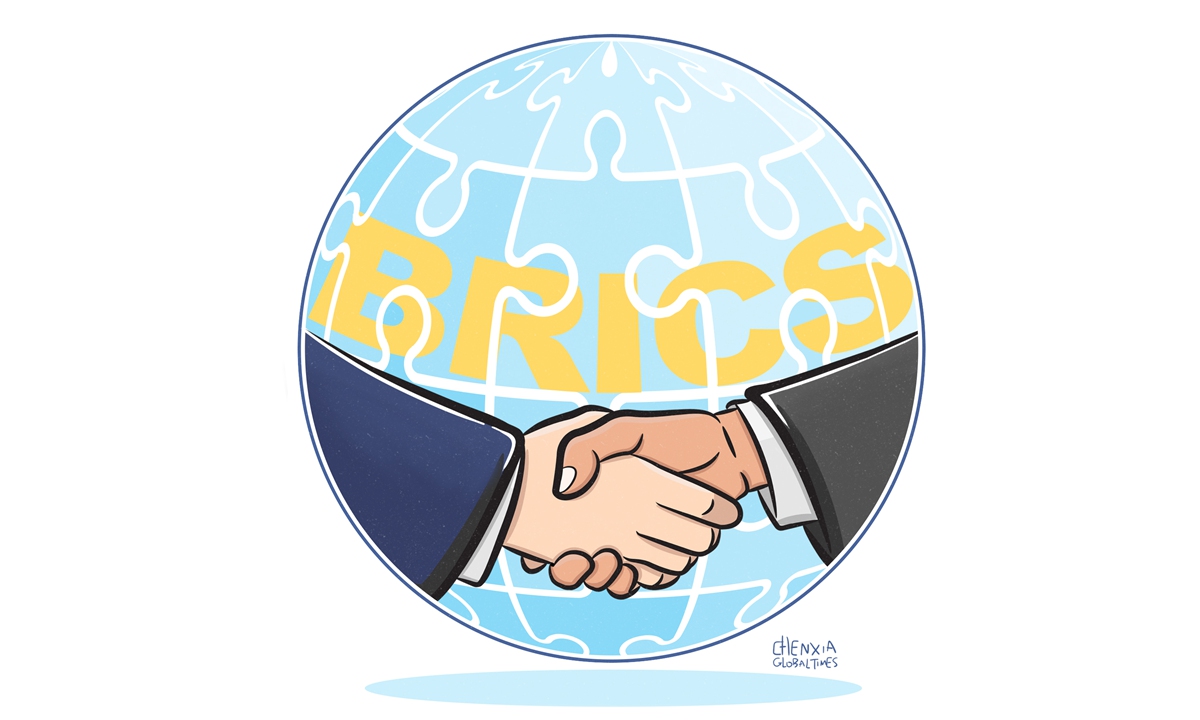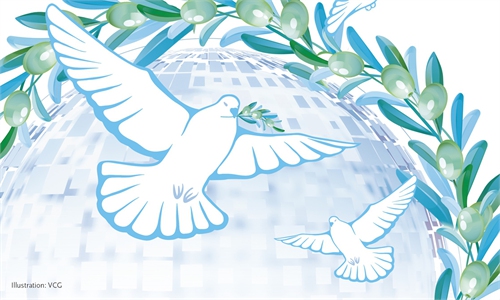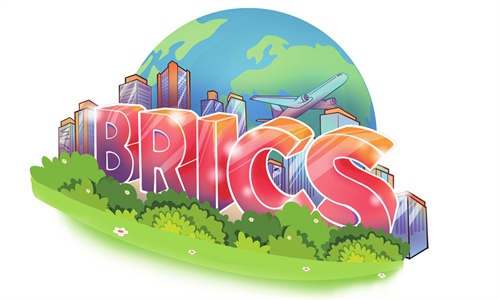
Illustration: Chen Xia/GT
After expanding from five to 10 member countries, BRICS has entered the "Greater BRICS" cooperation track. Recent reports in dicate that Cuba and Syria have applied to join the BRICS cooperation mechanism. The scale and appeal of "Greater BRICS" effectively enhance its international influence, making it an important force for profoundly changing the international power structure.
Currently, the international order is in a state of "disorder." The old order is experiencing systemic turbulence while the new order is struggling to emerge amid severe North-South divisions. There is a "disbalance" in the distribution structure of international power. The institutional power of BRICS countries and developing nations in the international power system does not align with their economic size, while Western countries like the US aim to maintain this imbalance to ensure their monopoly over international affairs. However, BRICS countries and developing nations are unwilling to continue being sidelined in international matters and refuse to be the "silent majority." They seek to maintain coordination to change the unjust and irrational global governance mechanisms, striving for discourse power and representation commensurate with their economic size.
The "Greater BRICS" represents the interests of the Global South. BRICS has clearly indicated that it doesn't just represent the interests of its member states. It also aims to give a voice to the vast number of developing countries on the international stage. Over the years of BRICS development, whether on geopolitical hotspot issues or in areas like climate change, food security, disease prevention and IMF quota reform, BRICS countries have consistently advocated for the reasonable and rightful power of developing nations, establishing relevant working mechanisms as well. It is precisely because the essence of BRICS' openness and inclusiveness that many Global South countries are eager to join.
The "Greater BRICS" is a non-Western group, but not an anti-Western mechanism. It is essential to recognize that the current global order was primarily designed and led by Western countries after World War II, playing a significant role in maintaining stability and fostering global economic growth. The BRICS mechanism, representing the interests of the Global South, is not a subverter of the existing order but rather a promoter of reform. The BRICS countries do not aim to create an entirely new anti-Western order; instead, they seek to transform and innovate the unjust and unreasonable aspects of the current system, making it fairer and more equitable through collaborative governance, consultation and shared benefits.
For instance, the New Development Bank established by the BRICS countries does not intend to replace the World Bank; rather, it aims to complement and enhance existing international financial institutions, promoting greater diversity within the international financial system.
Furthermore, the BRICS countries do not intend to create a new parallel confrontational system with the Group of Seven (G7). While BRICS members and partner countries may express varying degrees of dissatisfaction with the hegemonic tendencies and coercive actions of the West, most do not want the "Greater BRICS" to be associated with a political confrontation against the Western bloc.
The "Greater BRICS" will join hands with the Global South to transform the world development process. This journey will undoubtedly be fraught with challenges and obstacles. However, although the path may be long, it will ultimately be traversed; and while the task may be difficult, it will be accomplished through action.
The author is a research fellow at China Institute of International Studies. opinion@globaltimes.com.cn



